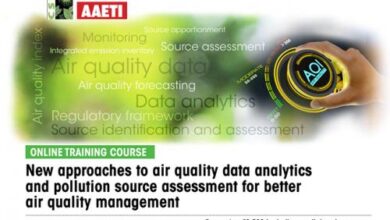Advanced analytics aid real estate decisions | India

In a changing real estate landscape, advanced analytics are replacing conventional decision-making methods. Using advanced analytics in sector decisions has many benefits that play a critical role in staying ahead in a competitive market.
Previously, many real estate firms made decisions using gut feeling and historical data. Data-driven decisions provide a broader range of factors and gives clearer insights into a location’s potential and risks.


Partner
Shardul Amarchand Mangaldas & Co.
Developers and investors face difficulties in acting quickly on prospects because standard techniques of data analysis are time-consuming and inefficient. Shifting through vast amounts of data with limited tools to identify obscure trends and make informed decisions is now ineffective. As a result, opportunities often slip away by the time the necessary information has been compiled, classified and analysed.
Advanced analytics, using various data sources and machine learning, significantly improve decision-making. Such tools lead to more effective market strategies and better investment outcomes. They integrate various data sources, automate data compilation and link different databases for analysis. This helps in identifying patterns and forecasts from the data, providing insights that create new market strategies.
Asset managers can use machine learning to merge broad and local forecasts, prioritising areas with high potential. Joining distinct data points allows for more accurate projections of areas with considerable price appreciation potential.
Developers can use these advanced tools to effectively identify promising areas and clarify property prospects by analysing past transactions and other data. They can select optimal locations and building types, refine their property mix and adjust timing and pricing strategies to maximise value.
Nearby grocery stores are often said to affect the prices of residential property, but the reality is more nuanced. Such pricing is influenced by the mix of quantity, variety and quality of community facilities. The ideal balance between resident concentration and group amenities varies from city to city.
Data-driven methodology offers valuable insights. Conventional factors such as vacancy rates can predict future values. However, specific factors show that buildings in the same area can have very different rental performance. Similar buildings may have different values when rated with recognised metrics. Such variation significantly affects portfolio results when applied to multiple investments.
The benefits of advanced analytics are evident in stress testing. Predictions under different market scenarios show how properties might perform in various conditions. This allows more informed investment decisions and risk management. Advanced tools can identify properties that maintain their value during market dips, necessary for long-term investment planning.
Linking yields from distinctive models with conventional forecasts provides a comprehensive view, improving decision-making. Analytics ensure resources are used efficiently by forecasting earnings on property improvements. This information guides investment locations for optimal results. Advanced analytics thus enable real estate professionals to make informed, data-driven decisions in property investments and their management.
Integrating advanced analytics into a real estate portfolio requires planning and effort. Compiling sufficient data for accurate algorithms is time-consuming and manual data scrubbing is expensive. Many organisations are interested in advanced analytics but few manage to implement it. Organisations may start by applying analytics to key strategic initiatives. They should focus on data cleaning and formulating and implementing clear-cut practices for data governance, interpretation and decision-making. They must also set up long-term data analytics strategies with defined tasks and objectives extending beyond initial projects.
To remain competitive, real estate organisations must adopt advanced analytics for research, portfolio review and underwriting. This technology, driven by the swift spread of artificial intelligence, offers a predictive capability that cannot be disregarded. Speedy action is crucial to adopting these valuable tools, enhancing the organisation’s ability to make informed, data-driven decisions and drive success.
Ashoo Gupta is a Partner at Shardul Amarchand Mangaldas & Co. Views expressed in this article are personal and do not reflect the opinions or views of Shardul Amarchand Mangaldas & Co.

 Shardul Amarchand Mangaldas & Co
Shardul Amarchand Mangaldas & Co
Amarchand Towers, 216,
Okhla Phase III, Okhla
Industrial Estate Phase III,
New Delhi, Delhi 110020
Executive Chairman:
Shardul Shroff
Managing Partner:
Pallavi Shroff and Akshay
Chudasama
Contact details:
T: +91 11 4159 0700
E: Connect@AMSShardul.com
New Delhi | Mumbai |
Gurugram | Chennai |
Bengaluru | Ahmedabad | Kolkata



